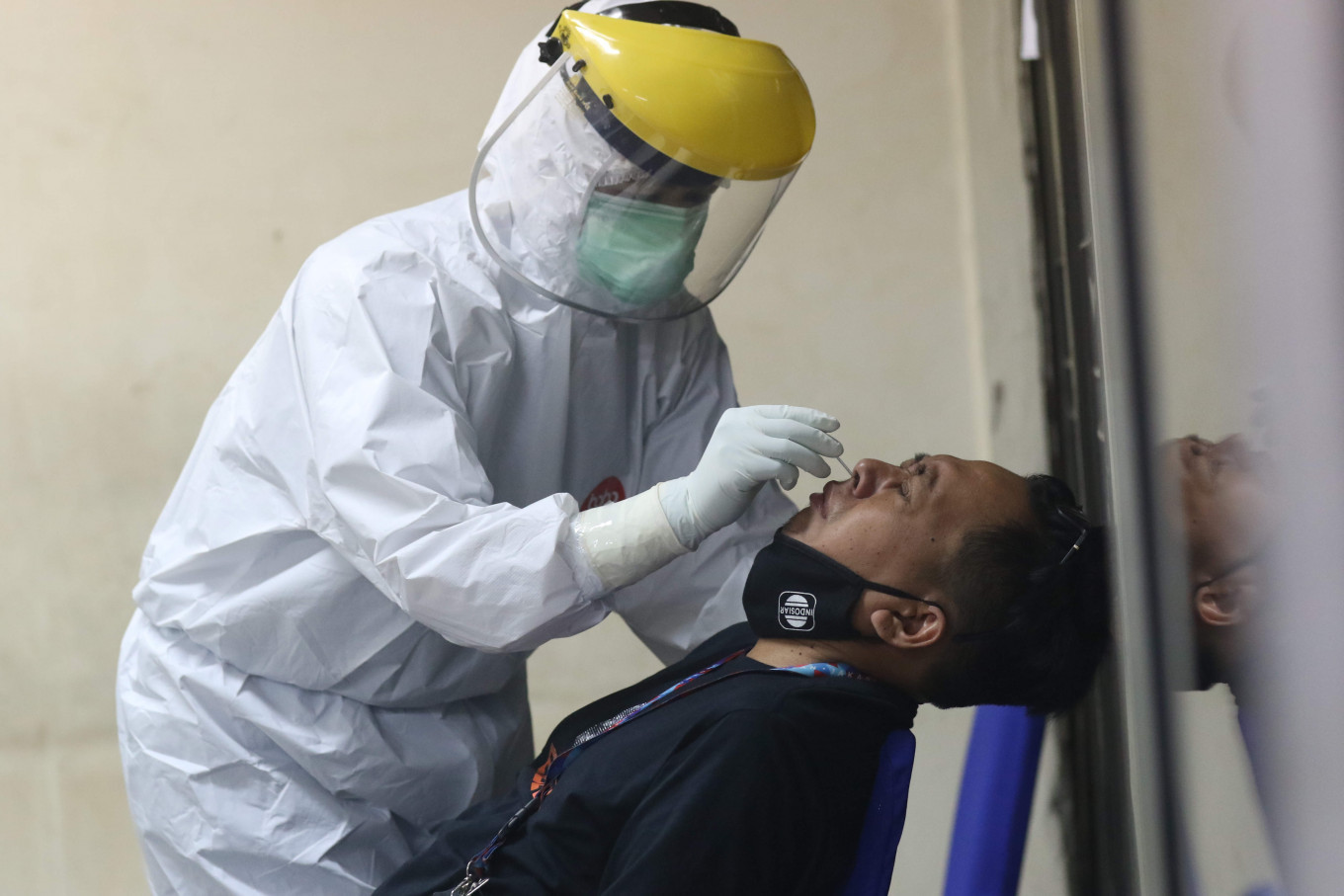Popular Reads
Top Results
Can't find what you're looking for?
View all search resultsPopular Reads
Top Results
Can't find what you're looking for?
View all search resultsRation swab tests, task force head tells regions
Task force to determine minimum and maximum benchmark that must be met by local health agencies.
Change text size
Gift Premium Articles
to Anyone
N
ational COVID-19 task force head Doni Monardo has asked regional health agencies to ration their polymerase chain reaction (PCR) tests and stay consistent with the World Health Organization's minimum benchmark of 1,000 per 1 million people per week.
Doni said his team found that some provinces had exceeded the benchmark per week, such as Jakarta, and that all regions should use them wisely to anticipate future cases as the COVID-19 epidemic had yet to see its end.
"[If using the benchmark, some provinces] need between 7,000 and 10,000 people per week. But Jakarta [for instance] as of today [Sunday] has reached 90 [thousand people] tested [per week],” Doni said during a COVID-19 handling coordination meeting on Sunday evening, as quoted by kompas.com. “Please ration them. Don't waste them on tests that do not suit the targets.”
Jakarta ideally needs to test 10,645 people per week, if using the WHO benchmark.
Doni said each region should take into account their testing logistical needs so they could continue testing in the longer term. He said the task force would determine a minimum and maximum benchmark that must be met by local health agencies so that testing performance would be proportional.
Read also: Indonesia’s COVID-19 testing capacity approaching WHO’s target: Task force
“Each region must calculate [this]. We don’t know when COVID-19 will end. Our physical stamina, supported by logistics, especially budgeting, must be taken into account,” he said.
Doni’s statement came amid persistent calls from experts for the scaling up of tests to suppress the positivity rate to below the ideal rate of below 5 percent, as opposed to the country’s high rate of 18 percent on Monday. The number of people swab tested nationwide was above 30,000 per day this month, with occasional decreases on weekends.
Saleh Daulay, a member of House of Representatives Commission IX overseeing health, said rationing tests was a wrong move as the country's testing performance was still low compared to its population.
“We’re a big country, so tracing and testing must also be expanded. Right now we're still far behind the necessary ratio,” Saleh of the National Mandate Party (PAN) said as quoted by kompas.com.
Saleh said setting a minimum and maximum benchmark would only lead to fewer people getting testing, which would obscure COVID-19 handling in the country.
Read also: Without govt support, COVID-19 testing remains low in Indonesia
He urged the government to seek solutions so that testing could be done more frequently by looking for alternative testing methods that were affordable and accurate by working with various testing producers from other countries.
Experts have been calling on the government to use rapid antigen tests, which produce faster results and are more affordable than the gold standard PCR test, although the former is less accurate than the latter.
The latest WHO situation report on Dec. 2 said antigen tests could be used to improve testing capacity, especially in areas with limited access to PCR laboratories and in labs that had a long turnaround time for PCR test results. The report also noted a gap between the daily number of suspected cases and the daily number of people tested -- 71,074 suspected cases and 41,861 people tested on Dec. 2. It said that it was crucial to improve laboratory capacity and ensure adequate supplies to test all suspected cases. (ars)
Editor’s note: This article is part of a public campaign by the COVID-19 task force to raise people’s awareness about the pandemic.










